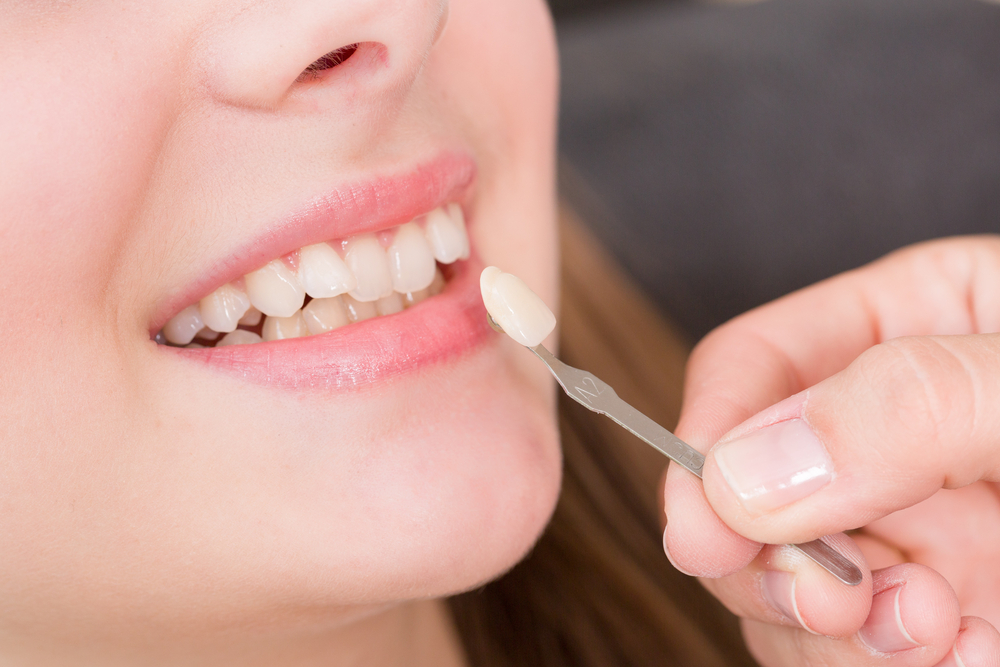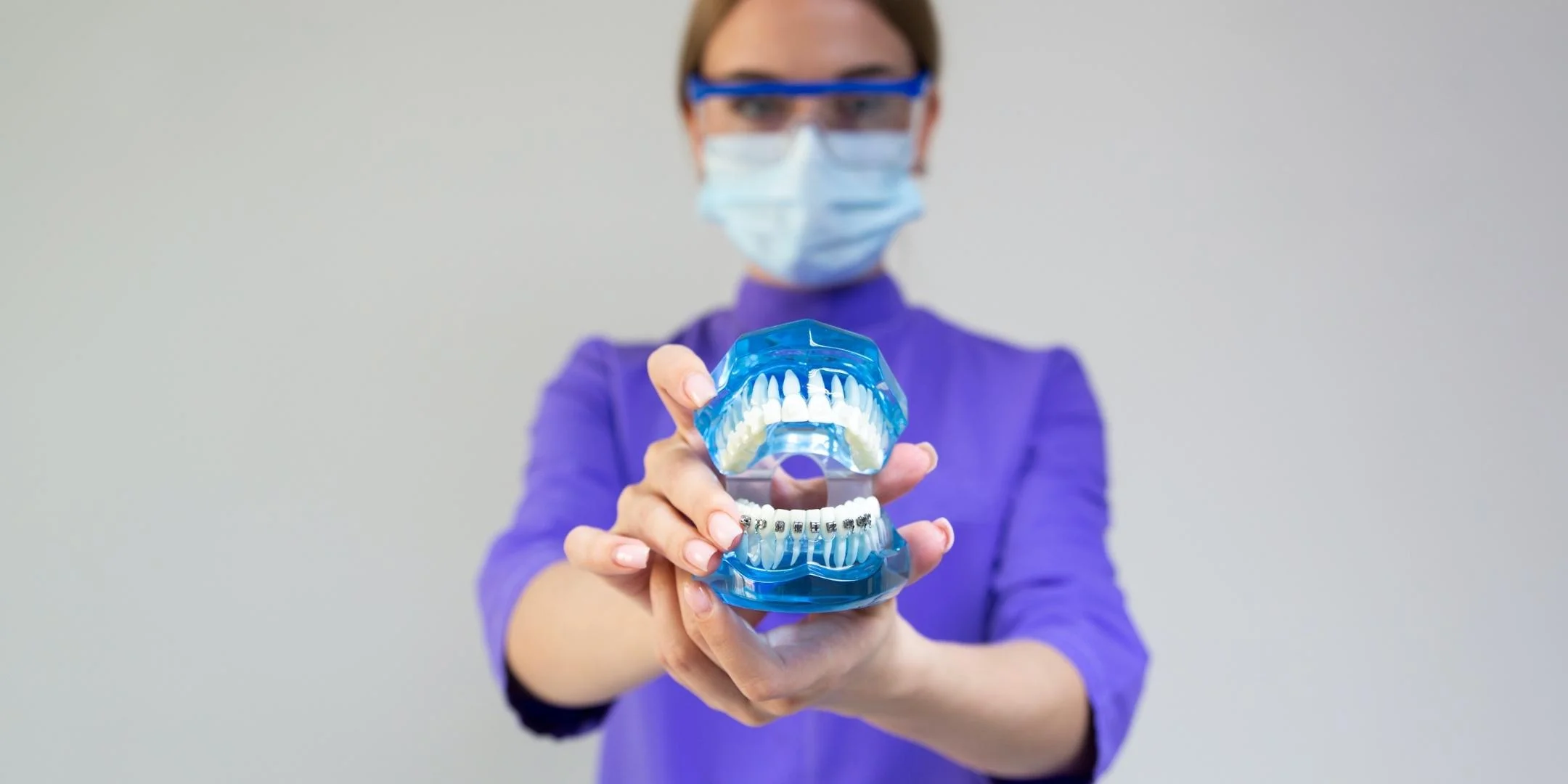Dental implant surgeries are very common nowadays. It is performed to correct a damaged tooth by replacing its root with artificial tooth roots like metal screws. Even though the success rate of dental implant surgery is high, it is not possible to completely rule out the chances of a dental implant failure after the surgery. As the technological advancement in the medical field is remarkable, it is always advisable to have dental implant surgeries as a permanent solution for damaged teeth.
What Is A Dental implant?
A dental implant is an artificial fixture designed to replace a damaged tooth. Dental implants are very safe as they can almost function like a natural tooth. In a process called osseointegration, a fusion between the jawbone and dental implant happens and makes the implant function smoothly. As titanium is used for making most dental implants, it can easily blend and function with the human body, unlike other metals. Even though dental implant surgery is comparatively safe and successful, sometimes it can be a failure due to many reasons.
Why Do Dental Implants Fail?
It is better to know about the reasons for dental implant failure before undergoing the treatment.
- Peri-Implant Diseases: Peri-Implant diseases are mainly caused by a lack of oral hygiene and severe gum infections like periodontitis. Smoking can also trigger peri-implant diseases. If left without proper care, bacteria will build up around the implant area, below the gum line, just like the bacterial infection occurs around a natural tooth. If left without adequate medication, the bacterial infection will become more severe with time. Such conditions lead to more severe situations like peri-implant mucositis and peri-implantitis. Peri-implant mucositis is a gum inflammation that mainly affects the soft tissues around dental implants. It can be considered a precursor of peri-implantitis. Peri-implant mucositis is curable when detected at the early stage. Peri- implantitis is a severe stage of peri-implant mucositis, where the inflammation is greater, and the bone around the implant is deteriorated, causing damage to the dental implant. Peri- implantitis diseases are corrected mainly by surgical procedures. The symptoms of Peri-Implant diseases are similar to gum diseases like tender and red gum, gum bleeding, etc. A proper oral health care routine is a must to keep dental implants in good condition.
- Bruxism (Teeth Grinding): Teeth grinding is prevalent, and most people do it at times. Even though occasional bruxism is harmless in normal conditions, it may cause damage to dental implants. As teeth grinding mostly happens during sleep, it is quite challenging to identify the damage caused by teeth grinding in the initial stages.
- Osteoporosis: It is a disease that weakens the strength of bones. Osteoporosis usually develops without any proper symptoms and pain. The disease has a very severe effect on dental implants as it can affect the anchoring of the implant screws.
- Cancer Treatment or Radiation therapy: Cancer treatments and radiation therapy have adverse effects on dental implants. It prolongs the proper healing of bones and is sometimes attributed to dental implant failures.
- Smoking: Smoking increases the chance of dental implant failure, especially depending on where the implant is fixed.
- Medications: Some medicines affect the osseointegration process and slow the healing process. Patient should be very conscious about their medicines after the dental implant surgery.
What Are The Major Signs Of Dental Implant Failure?
In most dental implant failure cases, there are specific recurring symptoms.
- Severe pain and discomfort: Intense pain is a common sign of dental implant failures. However, some discomfort and pain are also part of dental implant failure. But it is possible to differentiate both. The pain that occurs during the healing process gradually subsides as osseointegration happens. On the other hand, dental implant failure pain increases day by day and becomes intense and uncontrollable. If the patient experiences any unnecessary pain around the dental implant area, it is advisable to consult the doctor as soon as possible.
- Inflammation of the gums/Gum Recession around the Implant: The incorrect fixation of the dental implant and weak bone strength mainly cause gum recession. The implant should be placed in the correct position to avoid gum recession.
- Difficulty while chewing and biting: If you find difficulty chewing and grinding, it may indicate some issues associated with dental implants. After completing the healing process, dental implants should function like natural teeth. If the difficulty is related to dental implants, it’s not a good sign. Without prolongation, it’s better to consult a doctor to solve the issues.
- Swollen gum: It’s normal to experience a little swelling in the gum after dental implant surgery. But usually subsides gradually, and the patient’s gum goes back to healthy condition soon. But in the case of failed dental implants, the swelling becomes worse and more dangerous. So it’s not good to ignore swollen gum if it appears exceptionally red and infected.
As records show, dental implants are most successful and safe. However, before undergoing dental implant surgery, it is always good to know about the dangers associated with it too. If you can identify dental implant failure early, it is easy to cure it without any complications. The first thing to remember is that dental implants are supposed to function like natural teeth. After the healing process, it should act like natural teeth without any inflammation. If there is any unnecessary pain or discomfort around the dental implant area, it is not a good sign. It’s always better to consult a dentist without waiting for the condition to worsen.
How Can We Avoid Dental Implant Failure? How To Do Efficient Dental Implant Care?
Dental implant care is a must for healthy lifelong implants. The golden rule to follow is proper oral hygiene. Almost all infection-related diseases can be ruled out by proper oral health care. Using an alcohol-free mouthwash and brushing twice daily will help attain oral health. You should be careful about the diet too. Try to avoid food items like hard candy and sugary sweets, which can cause damage to the teeth. Instead, try to incorporate food items good for bones and teeth. Regular checkups and appointments with a doctor will also help ensure the good and healthy condition of implants.
Things you need to know about Implant Failure Treatments
The first thing to do after a dental implant failure is to consult your dentist. As there are many reasons for dental implant failure, identifying the correct reason is essential. If you find an infection or swollen gum around the implant, clean the infected area regularly until you meet the doctor. Proper oral hygiene is a must to solve issues related to dental implant failures. In case of severe damage, you need to undergo another surgery to fix the implant.









